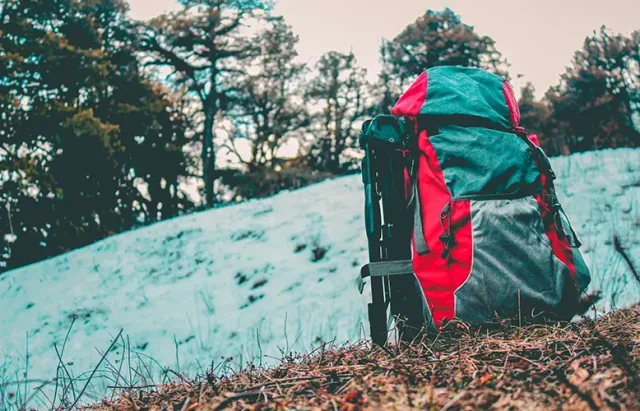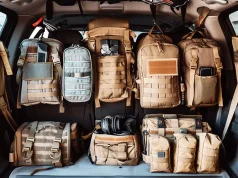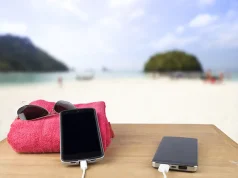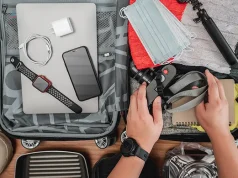
Going on an adventure means different things. However, for most people, that means traveling to new places. While that doesn’t mean you will encounter danger, it doesn’t hurt to be ready for anything.
Taking safety measures when you travel can mean the difference between a successful and scary trip, especially if you go solo. It can be terrifying for first-timers because they don’t know what to expect, especially in a foreign country.
The first thing to do is research your destination. It can help you select the safety gear to bring and then some for the unexpected. Here are the critical safety gear you need for happy travels.
Personal Protection
The COVID-19 pandemic pulled the term PPE, or personal protective equipment, into the mainstream. However, it has always been a must-have for travelers. Depending on where you’re going, you should carry around a mask and gloves to stave off any airborne infections. You should also have tissue, disinfectant wipes, and hand sanitizer.
Suppose you plan to travel where your physical safety might be an issue. A whistle can be a deterrent if you feel threatened, so always keep it handy. Pepper spray can also be helpful, but some countries may prohibit or limit their use. Find out before you start packing.
Since you always have these things with you, you need somewhere to stash it. A backpack is a convenient way to keep your hands free, so that’s a winner. If you plan to go hiking or anything like that, you might want to slip in a bulletproof backpack panel. Not that getting shot is likely, but it can protect you against falling tree branches or animal attacks. And while you’re at it, ArmorLiteShop provides a nice selection of stab proof vests for you extreme travelers, whether that’s to protect against animals with sharp claws or other people.
Depending on where you go, you can pack compression socks, sunscreen, moisturizer, extra clothes, and a cap or scarf. You should also include a first-aid kit and survival gear.
First Aid Kit
A first aid kit is necessary when traveling, especially to a remote or unfamiliar place. Injury, allergies, and illness are never planned and can happen anytime. You can treat minor wounds, alleviate pain, and prevent an allergic reaction with a properly stocked first aid kit.
You must undoubtedly pack any prescription medications. However, no travel first aid kit should be without the following:
- Bandages
- Gauze
- Antiseptic
- Painkillers
- Anti-inflammatory medication
- Antihistamine
- Anti-diarrhea tablets
- Motion sickness medication
- Rehydration salts
- Tweezers (splinters)
- EpiPen (severe allergies)
Travel Insurance
Always get travel insurance if you plan to go to another country. Your local health insurance might not cover you when abroad, so you could be in a lot of financial and physical hurt when you have a medical emergency.
Travel insurance will cover your medical bills and transport so you can recover at home without breaking the bank. It can also cover lost luggage, trip cancellations, and other emergencies. Choose a policy that is as comprehensive as possible based on your needs and budget. Ensure you read the fine print to know what is covered and what is not, particularly medical coverage.
Security Devices
You should always be aware of your surroundings to keep you and your valuables safe, especially when you travel. Many of the following devices might be overkill when going to the supermarket for a bag of lettuce. However, they are essential when in unfamiliar territory.
Luggage ID tags
An easy A would be to have ID tags attached to your luggage. Whether traveling by land, sea, or air, ID tags can easily find your luggage quickly. It also helps heaps when it goes missing. Choose one with a GPS tracker. It won’t work inside the airport or anywhere indoors, but you can track it when satellites can pick up. Smart tags also work, but they have a limited range.
Travel lock
Tracking is good, but keeping luggage secure is probably more important. A travel lock prevents anyone from quickly opening a passenger’s bag and getting stuff from it. However, you should get a TSA-approved one as you can’t check in luggage if you use an ordinary lock. Additionally, airport security can open your bags without damaging them.
Money belt
A money belt might not be your cup of tea, but it is an excellent way to secure your cards and cash. You can choose discreet ones that look like a typical belt but have hidden compartments. It can help you avoid looking like a street vendor and keep your valuables extra hidden.
Anti-theft backpacks
A standard backpack will do nicely in most cases, especially if you keep your valuables in your money belt. However, investing in an anti-theft bag can secure even more stuff. These are backpacks on steroids, made of tough, anti-slash material to prevent thieves from cutting through.
They also have flaps that hide the zippers, so the bag looks like a solid piece with no way to get in. Some may have RFID-blocking panels or pockets to prevent anyone from scanning your passport or credit cards to commit fraud or steal your identity.
Doorstops
Short-term rentals and hotel rooms may be in your travel plans. In that case, you want to include doorstops in your luggage. Remember, homeowners and hotel staff have keys to your room. Doorstops or wedges are simple and cheap, but they effectively stop anyone from entering your room uninvited.
Some come with audible alarms, so you’ll know when someone tries to come in. Just remember to remove the battery while traveling to prevent it from activating by accident in your luggage.
Survival Tools
Suppose you are planning a trip to the great outdoors, like cross-country cycling or hiking. You want to travel light while having everything you need to survive if you get lost or injured. It would be best if you had the following in your travel pack:
- Matches
- Flashlight
- Firestarter
- Compass
- Whistle
- Food
- Water
- Clothing
- Water purification tablets
These items can help you keep warm, nourished, and safe while you signal for help. You can use the compass to get your bearings and find your way back to civilization. It would also help to bring a wearable GPS device, similar to your luggage ID tags, so people can find you if you don’t check in as expected.
Safety Is Key
Traveling allows us to immerse ourselves in new experiences and broaden our perspectives. However, taking unnecessary risks can lead to unintended consequences. Equipping yourself with essential safety gear is crucial, ensuring you’re prepared for any unexpected situations. By prioritizing your safety, you can make the most of your travels and return home refreshed and enlightened in one piece.





